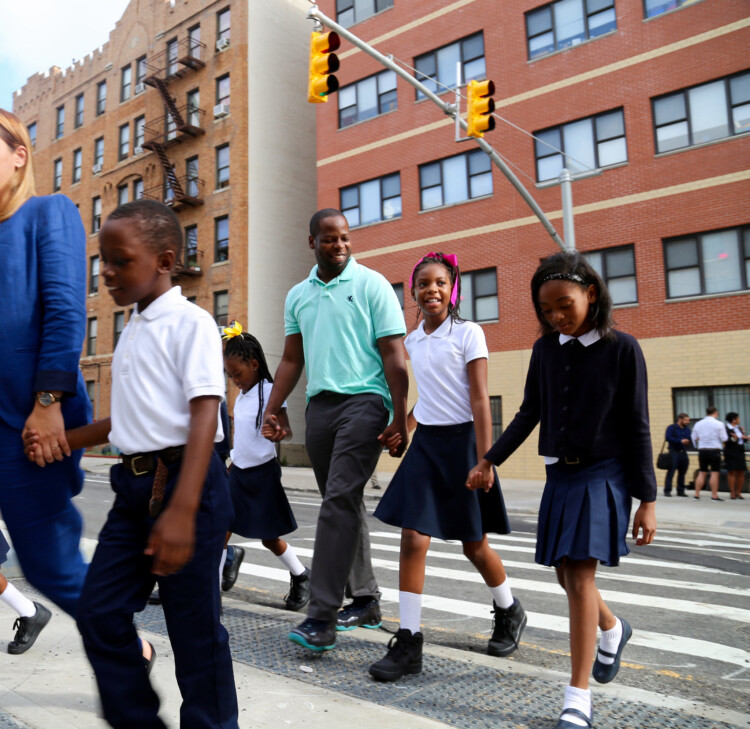The William T. Grant and Spencer Foundations have awarded a Rapid Response Research grant to the University of California, Berkeley in partnership with James Burch, policy director of the Anti Police-Terror Project (APTP) and a member of the City of Oakland’s Reimaginging Public Safety Task Force. The R3 program supports reviews of existing research, conducted by researchers in collaboration with policy partners, with the central goal of reducing inequality in youth outcomes in the United States.
The work will be led by sociologist Nikki Jones, a professor of African American Studies, and James Burch, policy director of APTP and a member of the Task Force. Under their leadership, a working group of Berkeley researchers will provide research-based recommendations on alternative responses to community safety and programs that address the root causes of violence. The Anti Police-Terror Project has led the work to reimagine public safety in Oakland, and their work and organizing over the past half decade resulted in the creation of the task force last summer.
The group will synthesize and share findings on the impacts of and alternatives to policing published within the past decade; research reports and evaluations of violence prevention and law enforcement alternatives, including Oakland-based efforts; early-stage findings on promising transformative justice solutions; and interviews with local experts in mental and public health.
Describing this work, William T. Grant Foundation President Adam Gamoran stated “This is about identifying evidence-based approaches to reallocate public funds toward social services instead of surveillance and punishment. It is intended to increase public safety in ways that support rather than undermine Black communities.”
Separately, the William T. Grant Foundation will continue its support for current R3 grantees at the Migration Policy Institute, in partnership with American Public Human Services Association, and at Duke University, in partnership with World Relief Durham.
Gamoran added, “In contrast to our larger portfolio of research grants, the R3 grants are designed for quick progress from research to action. They call for synthesizing existing research rather than conducting new studies, and the researchers collaborate with a policy partner who is eager to learn the results and who is poised to act as soon as the findings are presented.”
As a longtime funder of high-quality, empirical research, the Foundation developed the Rapid Response awards in 2017 to foster agile uses of research to respond to the needs of young people growing up in an uncertain and turbulent social climate. The cornerstone of the program is collaboration: On the front end of each funded project, the research and policy partners co-construct the goals and contours of swift, systematic reviews of existing research to ensure that the questions guiding the syntheses are ones that policymakers or practitioners need answered. Grantees commit to synthesizing the relevant literature rapidly, as well as mobilizing that knowledge for policy change.






